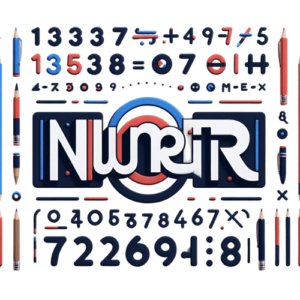
In the ever-evolving landscape of cybersecurity, the emergence of quantum computing poses both a promise and a threat. While quantum computers offer unprecedented computational power, they also jeopardize traditional encryption methods that safeguard our sensitive data. This dilemma has spurred the development of quantum-resistant encryption (QRE), a cutting-edge solution aimed at fortifying data security in the quantum era.
Understanding the Quantum Threat
Quantum computers leverage quantum mechanics to perform calculations at speeds exponentially faster than classical computers. This capability, while revolutionary for various fields like simulations and optimization problems, undermines the security protocols that protect our digital transactions and communications today. Traditional cryptographic algorithms, such as RSA and ECC (Elliptic Curve Cryptography), rely on mathematical problems that quantum computers can solve efficiently, potentially rendering current encryption methods obsolete.
The Imperative for Quantum-Resistant Encryption (QRE)
Recognizing the vulnerabilities posed by quantum computing, researchers and cybersecurity experts are actively developing QRE standards. Unlike traditional encryption, QRE algorithms are designed to withstand quantum attacks by leveraging mathematical principles that remain challenging for quantum computers to solve. These algorithms include lattice-based cryptography, code-based cryptography, and multivariate cryptography, among others.
Key Features and Benefits of QRE
- Post-Quantum Security: QRE algorithms ensure that encrypted data remains secure even against the computational power of quantum computers.
- Compatibility: QRE is designed to be compatible with existing communication protocols and infrastructure, enabling a seamless transition without disrupting current systems.
- Future-Proofing: Implementing QRE now future-proofs sensitive data against potential quantum threats, ensuring long-term security and confidentiality.
Implementation Challenges and Adoption
Despite its promise, widespread adoption of QRE faces several challenges. These include computational efficiency, interoperability with legacy systems, and standardization across industries. However, ongoing research and collaboration within the cybersecurity community aim to address these hurdles and accelerate the deployment of QRE solutions.
Conclusion 
As quantum computing continues to advance, the need for robust data protection mechanisms becomes increasingly urgent. Quantum-resistant encryption represents a proactive approach to safeguarding sensitive information in a future where quantum supremacy is a reality. By embracing QRE, organizations can mitigate risks associated with evolving technological landscapes and uphold the integrity of their digital operations.
In conclusion, the rise of quantum-resistant encryption marks a pivotal advancement in data security, ensuring resilience against emerging quantum threats and reinforcing trust in our digital interactions.



